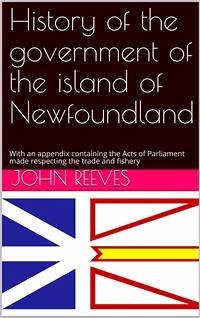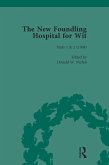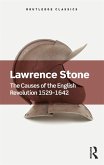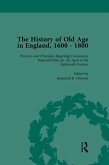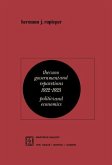Introduction
I intend to give a short history of the Government and Constitution of the island of Newfoundland. This will comprise the struggles and vicissitudes of two contending interests.—The planters and inhabitants on the one hand, who, being settled there, needed the protection of a government and police, with the administration of justice: and the adventurers and merchants on the other; who, originally carrying on the fishery from this country, and visiting that island only for the season, needed no such protection for themselves, and had various reasons for preventing its being afforded to the others.
This narrative will divide itself into four periods, or parts. The first will close with the passing of stat. 10 & 11. Will. 3. c. 25. by which the adventurers and merchants were supposed to have obtained a preference, and advantage over the pretensions of the inhabitants, and planters. The second will end with the appointment of a civil governor, and of justices of the peace in 1729; by which some stop was put to the disorder and anarchy that had long prevailed in the island, especially during the winter seasons. This may be considered as an advantage gained by the inhabitants and planters. The third closes with Stat. 15, Geo. 3. c. 31. commonly called in the island Sir Hugh Palliser’s act, which was intended for giving an advantage to the fishery carried on from the mother country; but, as it obliges both merchants and planters to pay their servants’ wages, it is equally abhorred by both parties; and both parties have shewn great readiness to join in asserting, that the fishery has gradually decayed ever since the passing of this act. The fourth comes down to the year 1791, when a court of civil jurisdiction was established upon principles which, it was thought, would secure the impartial administration of justice to the merchant and the planter, the rich, and the poor, the master, and the fisherman.
I intend to give a short history of the Government and Constitution of the island of Newfoundland. This will comprise the struggles and vicissitudes of two contending interests.—The planters and inhabitants on the one hand, who, being settled there, needed the protection of a government and police, with the administration of justice: and the adventurers and merchants on the other; who, originally carrying on the fishery from this country, and visiting that island only for the season, needed no such protection for themselves, and had various reasons for preventing its being afforded to the others.
This narrative will divide itself into four periods, or parts. The first will close with the passing of stat. 10 & 11. Will. 3. c. 25. by which the adventurers and merchants were supposed to have obtained a preference, and advantage over the pretensions of the inhabitants, and planters. The second will end with the appointment of a civil governor, and of justices of the peace in 1729; by which some stop was put to the disorder and anarchy that had long prevailed in the island, especially during the winter seasons. This may be considered as an advantage gained by the inhabitants and planters. The third closes with Stat. 15, Geo. 3. c. 31. commonly called in the island Sir Hugh Palliser’s act, which was intended for giving an advantage to the fishery carried on from the mother country; but, as it obliges both merchants and planters to pay their servants’ wages, it is equally abhorred by both parties; and both parties have shewn great readiness to join in asserting, that the fishery has gradually decayed ever since the passing of this act. The fourth comes down to the year 1791, when a court of civil jurisdiction was established upon principles which, it was thought, would secure the impartial administration of justice to the merchant and the planter, the rich, and the poor, the master, and the fisherman.

